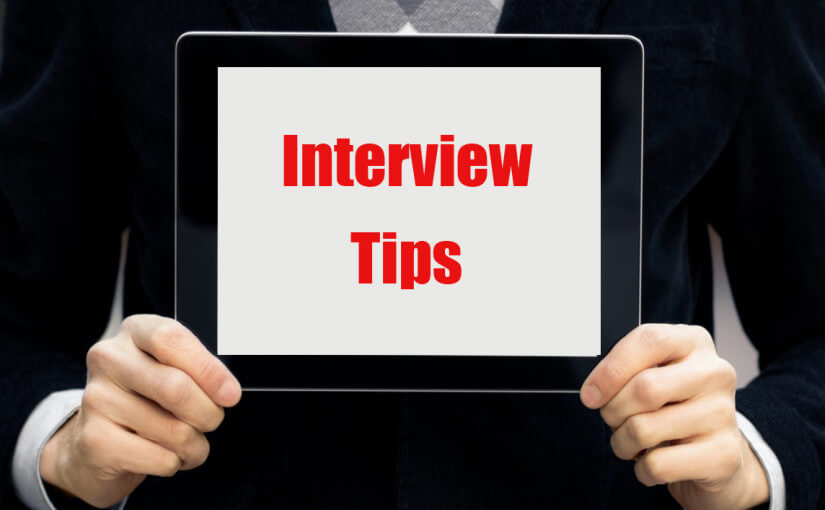Category: Job & Career
ContentRally is a leading source of reliable news and trending topics on Job & Career. Get hard-to-find insights and advice on Job & Career from industry-specific leaders.

Why is sleeping well so important for job performance?
You probably do not need anyone to tell you how important sleep is. If you have ever been kept awake by a crying baby, night after night; or you have crammed for exams until the early hours, for days on end, you know about the effects lack of sleep can have. If you do not get enough good quality sleep, you can end up looking pale and wrinkled. You can also be irritable and lacking in patience. Obviously, this is not an ideal situation to be in. But, it gets worse when you consider the detrimental effect that sleep deprivation can have on your performance in work. The basic effects of being over tired The basic effects of not sleeping as much as you should, or of having your sleep interrupted, are obvious. You lose the ability to focus properly and surroundings and events become fuzzy. You may fall asleep behind your desk or at a meeting. You are also more likely to struggle to concentrate, making mistakes more likely. The link between memory and sleep Although there is some dispute in the matter, many experts believe that your memory is set when you sleep. You learn information one day, it sets in your memory overnight, and you are able to recall it the following day. There is some evidence that if this process is interrupted by lack of sleep, your memory can be adversely affected. This is not something you want to happen if you are learning a new job, or you need to make an important speech at a business conference. How to improve your sleep pattern The good news is that there are ways in which you can start to increase the amount of good quality sleep that you get. Do not work or watch TV in bed; stick to sleeping. Make sure you sleep on the right mattress, such as a Lull mattress; read an in-depth review here. Try to go to sleep, and wake-up, at the same time each day. Switch off electrical devices when you are in bed so that you are not adversely affected by blue light. Sleep in a room which is as dark as possible. Relax for a couple of hours before you go to bed. Adopting any, or all, of these ideas, can help you get the sleep you need in order to perform well at your job. The benefits you get from sleeping well We have shown you how to improve the quantity and quality of sleep. But, how does doing so help improve the way you perform at work? Here are some improvements which are likely to happen. Full awareness and participation at meetings. Less chance of errors occurring. Improved productivity because you are able to concentrate. Better working relationships as you are less likely to be irritable. All of these improvements are likely to lead to an overall improvement in your job performance. If you are continuously tired, you are not going to perform as well as you can, at work. This is why it's so important to consider the tips we have given you, and make changes to your daily routine that enable you to get the right amount of good quality sleep each night. Read More: Hotel Jobs In NYC – Top Reasons To Explore This Opportunity 5 Reasons Why You Should Get Your MCSA Certification Today Top 6 U.S. Universities That Offer Health Science Course How To Write An Effective Resume That Get Noticed? 7 Tips For Writing A Perfect Cover Letter Ten Interview Tips That Might Surprise You: The Medical Edition Expert Advice On How To Learn All The Notes On The Guitar 10 Tips To Memorize All Necessary Information Before Exams 5 Tips For Getting A Cheap Essay Writing Service Online Improve Your Life With A Coach
READ MOREDetails
How Personal Branding Online Can Help Your Job Search
Every day, you see brands, you wear brands, you use brands, and you eat and drink brands. Business branding is everywhere. You are also a brand. Personal branding is especially useful when you’re job hunting or promoting yourself for other reasons. It’s up to you to craft your personal brand so that it conveys what you want it to convey. What is a personal brand? Your personal brand is the combination of factors that create an impression of you in the minds of other people. It’s your values, strengths, personality, passions, and all the other characteristics that people see in you. You don’t need a logo, and your resume is only a part of your personal brand. You are a complete package. When you develop your personal brand, you shape it to help your best qualities stand out. You can shape it differently for different purposes to show employers and others who you are. How a personal brand can help you How many times have you had what you thought was a successful job interview, knowing that you were fully qualified for the job – and you didn’t get it? It used to be that a good resume and a suitable personality were all you needed to get the job you wanted. These days, employers look further. When they research applicants online, they may find LinkedIn profiles, Facebook profiles, articles that you wrote, questionable photos, snide remarks on Twitter that you posted, and so on. In fact, almost 80 percent of recruiters are required to look into your online reputation to see if there are any red flags. Your personal brand helps you set yourself apart from others. Chances are that your competitors have already built their personal brands, making it easier for hiring managers to make decisions about them. One of them may have been hired for your dream job. A well-developed personal brand can also help you with these endeavors: Getting job promotions Having recruiters notice you Receiving recognition in your field Developing industry connections Attracting clients Strengthening your desirable qualities Reaching your goals more easily How to develop a personal brand First, identify the elements of your personal brand. You are a brand product, and you need to know how to describe it. You need to know what skills, strengths, talents, and experience you offer, what accomplishments show what you can do for others, and what are your core values and passions are. You need to be able to explain your goals and decide what you want to people to recognize you for. The answers to those questions form the unique package that is you. Once you’ve identified these traits, you need to package and publish them. There’s a bunch of different ways to go about this. LinkedIn is a key part of your personal brand. Prospective employers and clients will look for you and expect to see you there. Spend time writing a profile that shows off your personal brand. Review and update it regularly. Take part in LinkedIn discussions. Quality contributions will make people notice you and view your LinkedIn profile. Create profiles and take part in other social media platforms as well. Keep personal posts private so that professional connections see only posts that contribute to your personal brand. Applicants who have a personal website are more likely to be hired than those who don’t have one. Use your website to draw attention to your accomplishments, and keep it updated. If you write well, consider having a blog. A blog with industry-relevant articles can go a long way to building your credibility and attracting job offers. How to use your personal brand Now it’s time to create a resume that highlights the characteristics that form your personal brand. Use it to help employers understand your unique qualities that are relevant to their needs. Today’s resumes are more than lists of past jobs and responsibilities. Start your resume with a personal statement that describes your brand and what you offer of value to employers. Have a bulleted list near the top of the first page with accomplishments that illustrate your proficiency. Hand in hand with resume writing is researching target employers. Read their job ads carefully, and shape each resume to underscore the aspects of your personal brand that can best meet their challenges. Research jobs not only on large aggregate sites but also on local job boards. If you live in New York, for example, search the ads for jobs in your field at New York Jobs. You can also post your resume online. Choose a version that will appeal to the majority of employers you’re targeting. Let recruiters and your personal contacts know that you’re looking for a new position. When they understand your personal brand, they’re better able to recognize potential job matches. Networking groups may also help you find the right connection. Continue to take part online, monitor your social media presence, and write in your blog if you have one. Hiring managers and recruiters could be searching for you online at any time. Continue to connect with more people online. Past colleagues and supervisors, college alumni, people in your networking groups, and other people in your field can be valuable connections. Help them when you can, and they’ll want to help you. Read also: How is Social Media Playing A Role In Career Building?
READ MOREDetails
How to Write an Effective Resume that Get Noticed?
It can be a challenge to get your resume noticed from the stack of resumes that reach the employers for one job posting. In this highly competitive market, the need to stay at an edge from other candidates is a must. Today, most of the organizations use an Applicant Tracking System (ATS) to shortlist resumes before they reach the human eyes. Remember, that no recruiter is working on just one opening and would have thousands of resumes to go through each day. Hence, it is necessary that you draft your resume in a way that it gets noticed within seconds of the employer glance. If you simply keep a track of little things on your resume, you can get a recruiter friendly resume. Here is how you can get draft a resume like this: 1. Keep it Simple: As easy it is for the reader to gather information from your resume, greater the chances of your resume getting shortlisted. Do not use any of your designing techniques on your resume. You can save them for your portfolio in case you belong to the design background. Simple format, simple language and easy on eyes are the key points you need to remember when drafting your resume. 2. Use of Bullets: Your resume should be presentable. For your resume, anything that is less is more. In order to describe your role to the employer, use crisp action-oriented sentences listed in bullets. 3. Ensure you Meet the Qualifications: When you are applying for a job, make sure you at least have the minimum qualification required for the role. Otherwise, applying to a role which does not match your qualifications is a waste of time, yours and the recruiters. Read also: How Studying Abroad Can Benefit Your Career 4. Use a Customized Resume: One of the biggest mistake that job seekers make is sending a generalized resume for every job that they apply. Do not make this mistake and customize your resume for every job that you apply. Personalizing leaves the impression that you are genuinely interested in the job thus increasing your chances of getting shortlisted. 5. Keep Your Focus on Accomplishments: The reader wants to know how good you were at your job and not just your roles and responsibilities. Keep your focus on your accomplishments in your resume especially the ones that relate directly to the job you are applying to. Read also: WordPress Developer: Job Profile And Key Responsibilities 6. Have a Skills Section: Having a separate skills section is a good way of gathering recruiters’ attention and conveying that you fit for the role. 7. Keywords: Keywords are important. Both for the ATS and the human eyes. Pick up relevant keywords from the job description and spread it across your resume in such a way that it does not look overloaded or stuffed in. Be smart and check out samples before you apply using this resume. 8. Include Numbers and Facts: Getting business for an organization is the key factor that can easily get you shortlisted. If you have a role that involves numbers, include the numbers that show your positivity. Quantifiable achievements on resumes are a sure short way of creating an effective resume. 9. Remove Non-Essential Information: Your resume is a professional document and not personal. Hence, you need to stick to information that is suitable for the job you are applying to. If you have a work history of more than 10-15 years, you should pick the most relevant or most recent (whichever is applicable) to apply to this job. 10. Create a Career Summary: A recruiter spends hardly 6-7 seconds on your resume. If you can give him the required information in that amount of time, you definitely have an effective resume. To do so, have a career summary that includes the answer to a simple question “why are you a perfect fit for this job” 11. Make Sure there are No Errors: Any error, small or big on your resume can play a differentiating role for your job application. Hence, before you hit the apply button, ensure there are no spelling, grammar or typo errors in your resume. Typos or any type of silly errors in your resume are a big turn-off for the employers. 12. Include a Cover Letter: Often there is information that you want to share with the recruiter but the one-page resume does not give you enough bandwidth for the same. Include a cover letter that introduces you to the employer and shares information that you were unable to include in the resume. Make sure that your resume keeps in with these basic points. Build your network and connect with people in the industry for better job search. Good luck in your career search.
READ MOREDetails
How Studying Abroad Can Benefit Your Career
Studying abroad is an experience that not only means you will improve your education, it will also be an experience that will take you out of your comfort zone. As a student in another country, you will have to become accustomed to living in another culture and will come across hurdles you have never faced before. This will all result in you developing clarity in your job role and will help in you making key decisions about your career path. The following goes into more depth about how these things will benefit your career. You Will Gain First Hand Experience for How to Communicate with People From Another Country The first point is how you will learn how to communicate with people from another country. By working in another country you will gain first-hand experience of what it is like to talk to someone who knows a different language. Not only will this be by just speaking to a person, but you will also learn how people from different countries act in terms of their body language, this can be facial expressions, the way they greet other people or how they respond to certain situations. This type of skill can be imperative in certain industries, such as when undertaking medical work experience as you will be able to then communicate with people from another country when they are unable to explain their illness. Also being bilingual is a hugely desirable trait to have for employers are wanting people to work in their company. You’ll Improve Your Decision Making Skills If you’re traveling and working in another country on your own, you will learn how to make quick decisions on the spot. Also, on the flip side – if you’re traveling as part of a group you will develop the skills required for working as part of a team. These types of skills can then be easily transferred to a number of industries when it comes to making decisions. The reasoning for this is that you will know what you need to know when you’re put into these types of scenarios at your workplace. This is something which is important in almost every industry and it is often something which will be brought up during a job interview. If you are able to show that you have done this in a foreign country, it will certainly make you stand out. You’ll Indirectly Become Better at Managing Multiple Projects When you’re in a foreign country, you will be in a new place and this means that you will constantly be thinking and planning new places to go to have lunch or enjoy a weekend away. All of this might only be a fast thought process in your mind, but the way you will be planning and organizing these different scenarios can be directly linked to the type of work you will have to when you are undergoing some type of project management scheme. By studying abroad this will make you better equipped when it comes to high intensity and fast-paced jobs. To Sum Up To conclude, studying in a foreign country is certainly something that everybody should consider if they are wanting to give themselves the best possibilities when it comes to their career. Of course, there can be issues with the cost or simply being unable to travel, and this is certainly a viable excuse – if this the case these people should try their best to do some extracurricular work in their current country. However, if it is possible to work in another country then it certainly is something that should be considered as what it can do for your career may actually be unmeasurable. Read also: Hotel Jobs in NYC – Top Reasons to Explore This Opportunity Best MBA Colleges in India Attracting the Best of Best Among Students
READ MOREDetails
Ten Interview Tips that Might Surprise You: The Medical Edition
For many, interviewing for new physician employment or placement is a nerve-wracking experience. However, it doesn’t have to be! Here are ten interview tips for medical professionals that will help smooth the way to your new hospitalist jobs in Ohio, Pennsylvania or any other area around the world. 1. Prepare (Yes, Even More!): Sure, you’ve read the job description for the position you’re interviewing for, and you’re knowledgeable about your capabilities and your specialty. That’s not nearly enough. Read also: How To Crack Civil Service Exam In One Attempt First of all, it’s a good idea to prepare yourself for each interview by doing some in-depth research on the practice you’re interviewing with. A quick glance at the website is good, but there’s much more you can do. Plug the practice’s name into a search engine and see what else there is to know. Do they participate in education, charity, or research? How involved in the community is the practice? Not only will this help you ask meaningful questions during your interview, but it will also give you a head’s up about the practice’s organizational culture. 2. Dress the Part: You’re not going to show up in sweat pants… we hope. But did you know you can be too overdressed as well? Or that the way you dress might suggest a conflict with the practice’s company culture that you wouldn’t intend to advertise? A three-piece suit might be overkill, especially at practice with younger physicians. A wacky tie might be a bad idea if the practice values a serious demeanor. Or, these things might earn you brownie points with the interviewer. The point is: you really can’t know for sure. Keep it classic and professional with a business suit in traditional color—this goes for men and women alike. 3. Know That It’s Not Just the Interviewer You Need to Impress: Did you know that some practices send out a survey to everyone you interact with on interview day? Well, even if you know for a fact that this one doesn’t, don’t forget that it’s really the entire office that’s doing the interviewing, not just HR or one other doctor. Maybe the head of the medical practice isn’t going to ask the receptionist her opinion, but you can bet your bottom dollar that if you make a very poor impression on her, she’ll bring it up herself. Be courteous to everyone you encounter. 4. Ask The Right Questions: For your first interview, you want to spend as much time on questions that tell you more about the practice, its policies, and its culture. And don’t forget about the practical things: the levels of support staff doctors can expect, the staff hierarchy and reporting structure, the technological resources you’ll have at your disposal (or not), the on-call coverage policies, and so forth. Asking about these things presents you in a professional light, and gives you a great deal of information about what actually working for the practice might be like. 5. Write Your Questions Down: If you’re thinking, “I’ll never remember all of that!” don’t worry, because our next tip will help you out big time: write your questions down and bring them with you. While you may think it makes you look unprepared, the opposite is true: you appear to be a well-organized, detail-oriented person, and that’s just what you want. 6. Practice a Practice-Centric Attitude: Until you’ve actually received an offer, it’s not a wise idea to ask a lot of questions about benefits and the like during the interview process. Asking about the base salary prior to the interview is fine—there’s no need to waste their time or yours if it’s not suitable. Everything else can be left alone until the actual negotiating begins. This shows you’re more interested in the practice than your own gain, and that you don’t have a me-me-me attitude. Read also: Comic Relief for College Students 7. Don’t Dis Your Last Employer: No matter how much you dislike your last employer, you absolutely should not say anything negative about them in the interview. You don’t need to lie—just keep your phrasing as neutral as possible. Being a negative Nancy gives you no advantage and can be very detrimental. 8. Project Confidence: The key to projecting confidence is moderation. Be professional and friendly. Don’t fidget or slouch. Answer the interviewer’s questions and then ask a few of your own—keep the conversation going. 9. Don’t Forget to Follow Up: Actually, start following up before you even leave the premises! A simple “when can we touch base” or asking the interviewer how they’d like to proceed is fine. 10. Silence Your Devices: Don’t forget to silence your phone or other devices before the interview. It’s distracting (not to mention rude) to be receiving calls or notifications during the interview process. Read More: 5 Questions To Ask Yourself While Finalizing An E-Learning Platform For Quality Education Upcoming Educational Trends In 2017 10 Tips For Writing A Dissertation
READ MOREDetails
Secrets to the Perfect Bedroom Light
Gorgeous atmosphere in a home is essential, and nowhere more so than in your bedroom. Seeing how this is a place where we go when we want to rest or be romantic, the setting needs to reflect the mood. Now, this can be done in several ways, mostly by using eye soothing colors and cozy furniture, but for the overall atmosphere, tending to the lighting the right way is a must. Here are a few secrets for a perfect bedroom light. Read also: A Rundown of the Basic Led Lighting Natural Light: The first thing you need to consider when it comes to your bedroom is having a good natural light source. However, this is a slippery slope. If the bedroom faces your backyard, you could easily replace an entire wall with folding glass system and maximize the amount of natural light. On the other hand, if your bedroom is on the ground floor and facing the street, this is the last thing you want to do for both security and privacy reasons. Finally, there is nothing more beautiful than being woken up by sunlight gleaming through your window. However, when this happens at 5 AM on a Sunday, you might want to consider getting quality blinders. For an extra touch, you can always add curtains that will match the rest of your interior. Spice it Up: Apart from being a place where you rest, the bedroom is also a romantic hotspot. This is why it needs to have a lighting system to match. Dimming your lights can do the trick, but truth be told, there are many, more interesting solutions you could resort to. Some of them are DIY, like homemade lanterns and lamps, while others are of more traditional. Using candles to enhance the bedroom atmosphere is the oldest trick in the book. However, the choice of these candles matters as well. If you are planning a special evening, you might want to go with something more daring like a heart- or flower-shaped candles. Color-wise any shade of red will do, but you can also go with purple, white or even black. Candles also come in different scents so going with cherry, vanilla or strawberry may spice up the atmosphere. Lighting System: No matter how romantic or sexy it may feel, using candles and natural light won’t be enough on its own. You will need an artificial lighting system as well. There are several interesting solutions. While a lot of people go for luxurious chandeliers in their bedroom, others see this as a bit over the top. Some think that there is nothing more elegant, tasteful and efficient than using LED downlights. Apart from looking good, these fixtures also save energy, to a great extent, especially on the annual level, making them quite convenient, both visually and practically. A bedside nightlight for the nighttime reading sessions is also essential. As you can see, the bedroom light is not to be taken lightly. In fact, if done correctly, it can bring numerous benefits to both your health and your love life. There are only a few principles you have to follow and few rules to abide by. The first one is that you should use natural light for as much as you can, not only to be frugality but for the soothing effects it has on one’s psyche. The second one, light bulbs are not the only artificial light source and they are definitely not the most romantic one. Finally, saving some more on your power bill by switching to LED is never a bad idea. Read More: Seven Simple Ways For Achieving Cozy Bedroom Environment: For Perfectly Night Sleep 5 Perfect Ways To Create Size Illusion In Room With Home Accessories How To Make Your Home Look Like A Splendid Hotel?
READ MOREDetails
Hotel Jobs in NYC – Top Reasons to Explore This Opportunity
It is famously said “In New York, they like winners. They don't like second place.” This quote perhaps sums up the character of this city which has witnessed hundreds of ‘rags to riches’ stories over the years. For more than a hundred years this city has attracted people from around the world who come here to realize their dreams.The hospitality industry in NYC is no different and it has helped hundreds of thousands of people build a great career. , New York City sits top on everyone’s radar. Here we discuss some of the reasons for you to explore hospitality jobs in the city. The Odds Are High: As a job seeker, you would always want to work in a place that offers you maximum career options. And when it comes to stats, there can be no better option than New York City if you are looking to make a career in the hotel industry. The top 250 hotels in NYC have a total of about 70000 rooms and employ about 35000 people. Apart from this, there are hundreds of other smaller hotels, inns and B&Bs in the city that employ more than a hundred thousand people. The city being the center of the global economy is visited millions of people annually creating a vibrant hospitality industry. So your odds with hotel jobs in New York are substantially higher than anywhere else in the world. It is Constantly Growing: If you thought that the above figures are mind boggling and the growth has stabilized, think again. Since 2007, an estimated 35000 hotel rooms have been added to the city and each year more than 4000 rooms are being added. This has resulted in constant demand for new talent in the industry. In 2014, a record 55 million people visited the city with the majority in the corporate travel bracket. These figures are all-time high in the post-recession world and has stimulated the construction of new properties and hiring of fresh talent. Higher Wages: Working in one of the biggest cities in the world comes with its own perks. As per the latest figures released by the New York State Department of Labor the basic hourly wage for people in the hotel industry stands at $9 per hour which is among the highest in the United States for entry level employees. Apart from this employees also receive other allowances for Uniforms, Food and Lodging. And here we are only talking about minimum wages. If you are passionate about your job and possess the right skills you will never have a reason to feel disappointed about your remuneration in New York. It Adds To Your Resume: If you are planning to explore hospitality jobs in other parts of the world, the experience of working in a hotel in New York would act as a huge plus in your Resume. Finding hotel jobs in NYC involves going through the most stringent selection process where only the best make the cut. There is an aura about working in such a competitive ecosystem where you would have to deal with people from different parts of the world that come with their own expectations. This works as a great learning experience for any professional irrespective of his/her role. So even a small stint in New York improves your future prospects in this industry exponentially. As you can clearly see the hospitality industry in New York offers you an ocean of opportunities to explore. Irrespective of your skills and expertise you would find an opportunity that would lay a strong foundation for your long career. To scout for the most lucrative opening, you need to choose a job portal that is dedicated to the hospitality industry. These would keep you updated on the latest job openings across various hotels in the city and let you apply at your ease.
READ MOREDetails















